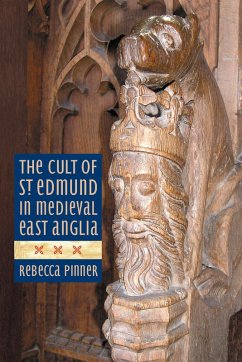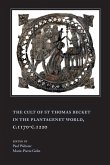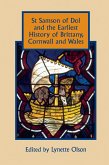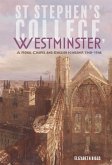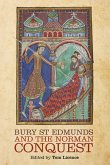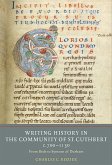An investigation of the growth and influence of the cult of St Edmund, and how it manifested itself in medieval material culture.
Longlisted for the Katharine Briggs Award 2016
St Edmund, king and martyr, supposedly killed by Danes (or "Vikings") in 869, was one of the pre-eminent saints of the middle ages; his cult was favoured and patronised by several English kings, and gave rise to a rich array of visual, literary, musical and political artefacts.
This study explores the development of devotion to St Edmund, from its first flourishing in the ninth century to the eveof the Reformation. It explores a series of key questions: how, why and when did the cult develop? Who was responsible for its promotion and dissemination? To which groups and individuals did St Edmund appeal? How did this evolveover time? Using as evidence a range of textual and visual treasures from the Anglo-Saxon king's erstwhile kingdom and later cultic heartland, Norfolk and Suffolk, the study draws on sources and approaches from a variety of disciplines (literature, art history, social history and anthropology) to elucidate the social, cultural and political dynamics of cult construction.
Dr Rebecca Pinner is a Lecturer in Medieval and Early Modern Literature atthe University of East Anglia.
Longlisted for the Katharine Briggs Award 2016
St Edmund, king and martyr, supposedly killed by Danes (or "Vikings") in 869, was one of the pre-eminent saints of the middle ages; his cult was favoured and patronised by several English kings, and gave rise to a rich array of visual, literary, musical and political artefacts.
This study explores the development of devotion to St Edmund, from its first flourishing in the ninth century to the eveof the Reformation. It explores a series of key questions: how, why and when did the cult develop? Who was responsible for its promotion and dissemination? To which groups and individuals did St Edmund appeal? How did this evolveover time? Using as evidence a range of textual and visual treasures from the Anglo-Saxon king's erstwhile kingdom and later cultic heartland, Norfolk and Suffolk, the study draws on sources and approaches from a variety of disciplines (literature, art history, social history and anthropology) to elucidate the social, cultural and political dynamics of cult construction.
Dr Rebecca Pinner is a Lecturer in Medieval and Early Modern Literature atthe University of East Anglia.
Dieser Download kann aus rechtlichen Gründen nur mit Rechnungsadresse in A, D ausgeliefert werden.

